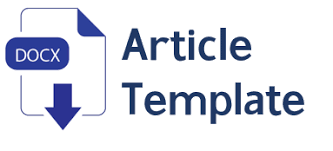Pemetaan Faktor Kesadaran, Pengetahuan, dan Sanksi dalam Meningkatkan Kepatuhan Pajak Kendaraan Bermotor
DOI:
https://doi.org/10.59086/jak.v3i1.633Keywords:
Kesadaran, Pengetahuan, Sanksi, Kepatuhan, Pajak Kendaraan bermotorAbstract
This study aims to map the factors of awareness, tax knowledge, and sanctions in enhancing motor vehicle tax compliance through a systematic literature review. A total of 15 national and international articles published between 2017 and 2022 were analyzed to identify how each factor contributes to taxpayer compliance behavior. The findings reveal that awareness fosters moral responsibility, tax knowledge improves understanding of obligations, and sanctions particularly administrative ones create a deterrent effect. However, the effectiveness of these factors is highly dependent on social context, perceptions of fairness, and the quality of tax authority services. This study is limited by the predominance of general tax compliance research, rather than studies specifically focused on motor vehicle tax. Therefore, further research and regional policy development are recommended, combining educational approaches, transparent public services, and consistent enforcement of sanctions.
References
Ajzen, I. (1991). The theory of planned behavior. Organizational Behavior and Human Decision Processes, 50(2), 179–211. https://doi.org/10.1016/0749-5978(91)90020-T
Alm, J., Cherry, T., Jones, M., & McKee, M. (2010). Taxpayer information assistance services and tax compliance behavior. Journal of Economic Psychology, 31(4), 577–586. https://doi.org/10.1016/j.joep.2010.03.018
Alm, J., & Torgler, B. (2011). Do ethics matter? Tax compliance and morality. Journal of Business Ethics, 101(4), 635–651. https://doi.org/10.1007/s10551-011-0761-9
Bahl, R. W., & Wallace, S. (2007). Intergovernmental transfers: The vertical sharing dimension. In Intergovernmental Fiscal Transfers (pp. 205–248). Springer.
Bird, R. M., & Zolt, E. M. (2003). Introduction to tax policy design and development. World Bank Institute.
Braithwaite, V. (2003). Taxing democracy: Understanding tax avoidance and evasion. Ashgate.
Devos, K. (2014). Factors influencing individual taxpayer compliance behaviour. Springer.
Feld, L. P., & Frey, B. S. (2002). Trust breeds trust: How taxpayers are treated. Economics of Governance, 3(2), 87–99. https://doi.org/10.1007/s101010100032
Heider, F. (1958). The psychology of interpersonal relations. New York: Wiley.
Kirchler, E. (2007). The economic psychology of tax behaviour. Cambridge University Press.
Luttmer, E. F. P., & Singhal, M. (2014). Tax morale. Journal of Economic Perspectives, 28(4), 149–168. https://doi.org/10.1257/jep.28.4.149
Mandowally, A., Sunaryo, S., & Wulansari, N. D. (2020). Pengaruh pengetahuan perpajakan, kesadaran, dan sanksi terhadap kepatuhan wajib pajak orang pribadi. Jurnal Ilmu dan Riset Akuntansi (JIRA), 9(6), 1–17.
OECD. (2010). Understanding and influencing taxpayers’ compliance behaviour. OECD Publishing.
Palil, M. R., & Mustapha, A. F. (2011). Factors affecting tax compliance behaviour in self-assessment system. African Journal of Business Management, 5(33), 12864–12872. https://doi.org/10.5897/AJBM11.1742
Primasari, M. P., & Hendrani, A. (2022). Pengaruh kesadaran dan sanksi pajak terhadap kepatuhan pajak kendaraan bermotor. Jurnal Riset Keuangan dan Akuntansi, 8(1), 25–34. https://doi.org/10.31294/jrka.v8i1.12345
Puspasari, N., Suryanto, T., & Rahayu, N. (2025). The influence of tax knowledge, awareness, and sanctions on motor vehicle tax compliance in regional government. International Journal of Public Sector Performance Management, 12(3), 215–229.
Purwanto, A. (2020). Efektivitas sanksi administrasi dalam meningkatkan kepatuhan wajib pajak. Jurnal Akuntansi dan Keuangan Daerah, 15(2), 110–118.
Saad, N. (2014). Tax knowledge, tax complexity and tax compliance: Taxpayers’ view. Procedia - Social and Behavioral Sciences, 109, 1069–1075. https://doi.org/10.1016/j.sbspro.2013.12.590
Siamena, R., Nababan, C. A., & Harefa, R. (2017). Pengaruh sanksi perpajakan terhadap kepatuhan wajib pajak di Kota Medan. Jurnal Akuntansi dan Pajak, 18(1), 33–42.
Torgler, B. (2005). Tax morale and direct democracy. European Journal of Political Economy, 21(2), 525–531. https://doi.org/10.1016/j.ejpoleco.2004.08.002
Torgler, B., & Schneider, F. (2007). What shapes attitudes toward paying taxes? Evidence from multicultural European countries. Social Science Quarterly, 88(2), 443–470. https://doi.org/10.1111/j.1540-6237.2007.00466.x
Undang-Undang Nomor 28 Tahun 2007 tentang Ketentuan Umum dan Tata Cara Perpajakan.
Undang-Undang Nomor 28 Tahun 2009 tentang Pajak Daerah dan Retribusi Daerah.
Wardani, D. K., & Rumiyatun, R. (2017). Urgensi kepatuhan wajib pajak dalam mendukung pembangunan nasional. Jurnal Keuangan dan Perpajakan, 4(1), 45–56.
Weiner, B. (1986). An attributional theory of motivation and emotion. New York: Springer-Verlag.
Wenzel, M. (2004). The social side of sanctions: Personal and social norms as moderators of deterrence. Law and Human Behavior, 28(5), 547–567. https://doi.org/10.1023/B:LAHU.0000046433.57588.71
Downloads
Published
How to Cite
Issue
Section
License

This work is licensed under a Creative Commons Attribution 4.0 International License.
Mandiri Jurnal Akuntansi dan Keuangan
Publisher Lembaga Riset Ilmiah
© 2025

This work is licensed under a Creative Commons Attribution 4.0 International License.
Most read articles by the same author(s)
- Edisah Putra Nainggolan, Konstribusi Good Corporate Governance dan Gender Diversity terhadap Nilai Perusahaan , Mandiri : Jurnal Akuntansi dan Keuangan: Vol. 3 No. 2 (2024): Juni 2024
- Leni Deli, Edisah Putra Nainggolan, Kontribusi Pembiayaan Murabahah, FDR, NPF, dan NOM terhadap Kinerja Keuangan (ROA) Bank Umum Syariah di Indonesia , Mandiri : Jurnal Akuntansi dan Keuangan: Vol. 3 No. 2 (2024): Juni 2024
- Edisah Putra Nainggolan, Implementasi Sistem Anti-Fraud dalam Perencanaan dan Realisasi Dana Kelurahan , Mandiri : Jurnal Akuntansi dan Keuangan: Vol. 3 No. 3 (2024): Oktober 2024












